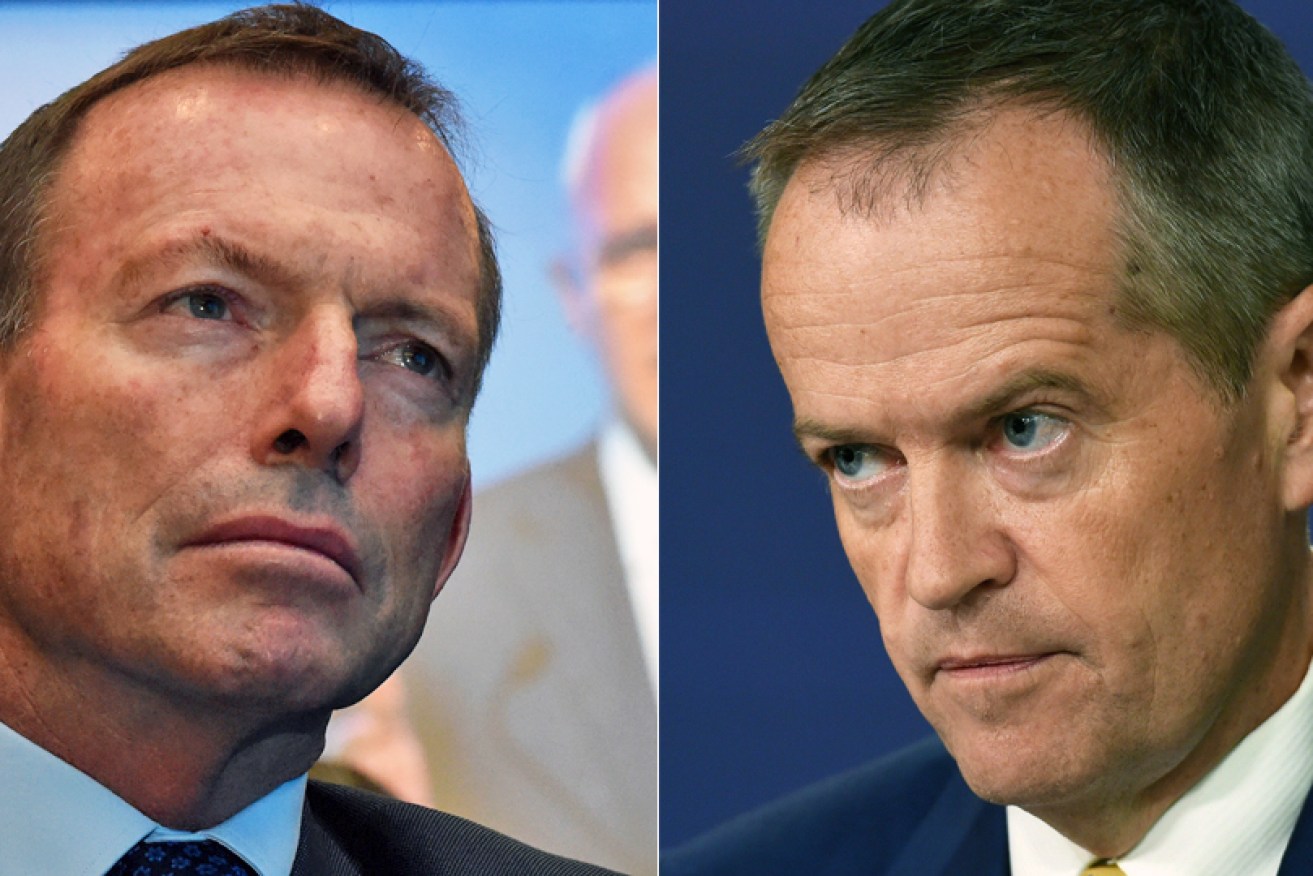Test for Labor on energy policy


'Labor must forsake Abbott-style tactics in order to bring down power prices.' Photos: Getty
Aside from a couple of quickly-corrected stumbles, Bill Shorten’s brave policy decisions have played a big part in making Labor the front runner for the next federal election.
That could all change this week, however, if Labor misjudges the politics of power, particularly the National Energy Guarantee (NEG).
Labor’s election policies achieve two important political outcomes. Controversial plans such as the crackdown on negative gearing, abolition of cash refunds on dividend imputations and scrapping of tax cuts for big business have allowed Labor to ‘reallocate’ huge amounts of taxpayer dollars to health and education. The policies have also tapped voter anger over inequities in our economy.
But the politics of power is not as straightforward as taking from the rich to give to the poor. High power prices is a hip-pocket issue like housing affordability and access to quality schools and hospitals. And the path to lower prices is finding common ground with the government, not emphasising points of policy difference, as Labor has done elsewhere.
Without agreement between the two major parties, Australia’s energy market settings are likely to change with the election of each new government. This could mean that a 30- to 50-year, multi-billion-dollar investment in one type of electricity generation could be made worthless overnight by a change of government.
An uncertain policy environment like this makes businesses that build and finance electricity generators nervous. That uncertainty makes finance and insurance more expensive, increasing the final cost for electricity users.
And in some cases, those businesses won’t even take the chance. It’s no coincidence that Australia stopped building coal-fired power stations around the time PM Kevin Rudd backed away from his emissions trading scheme and Tony Abbott started to demolish Labor’s ‘carbon tax’.
Mr Abbott obliterated any chance of the major parties reaching agreement on energy policy, and he’s doing his best to prevent that happening today. The difference between now and then is that Mr Abbott no longer has the numbers in the Liberal Party room to bring down Malcolm Turnbull on energy.
The other difference is that Australians have now seen the results of Mr Abbott’s broken energy policy: high power prices and insufficient ‘dispatchable’ energy to balance out the increasing amounts of renewable energy flowing into the grid. The NEG is an attempt to fix that problem.
(‘Dispatchable’ means electricity sources that can be switched on and off quickly to meet demand, such as gas turbines or battery-stored renewable energy.)
The NEG also provides a way back to bipartisanship on energy for the major parties. That’s why businesses dependent on energy, as well as energy businesses themselves, have called this week for state and territory energy ministers to back the policy.
If Labor was to back the NEG, joining with the government to pass it through parliament, this would send a signal to risk-averse energy developers and investors that the major parties had agreed not to use energy policy as a political football.
Labor’s support would also make it irrelevant if Tony Abbott or any other backbenchers decided to cross the floor against the NEG.
Some Labor state governments met on Monday to decide their negotiating positions on the NEG before a COAG energy ministers meeting on Friday. If all states and territories ‘sign off’ on the NEG at that time, Energy Minister Josh Frydenberg will take draft legislation to the Coalition party room early next week. Then COAG energy ministers will meet by phone to give another ‘all-clear’.
If any one state or territory government decides to oppose the NEG, then it won’t go ahead. Despite this, both the Victorian and Queensland state governments have claimed the PM and Mr Frydenberg should get Coalition party room signoff of the NEG first. This appears to be a transparent ploy to kill the NEG by aggravating tensions within the government.
There are a number of ways the NEG could fail, either at COAG, in the Coalition party room or in the parliament. But each scenario is a political risk for Labor because it leaves the Turnbull government with nothing to lose if it ramps up attacks on Labor over electricity costs.
We saw a hint of that approach on Monday: Minister Frydenberg warned that if the Labor states were seeking to delay or obstruct the NEG, “they will be held to blame for higher power prices”. That threat would be extended to federal Labor, and repeated on high rotation until polling day.
This could be avoided if Bill Shorten adopted another brave and controversial policy stance, namely to join with Mr Turnbull on the NEG. Then both Labor and the Coalition could claim to be providing the certainty needed to reduce electricity prices for Australian voters.
Product differentiation is undoubtedly an important element of political campaigning, as Bill Shorten’s Labor has shown over the past five years.
But there are also times when it makes good sense – politically and in a policy sense – for major parties to be on the same page. The National Energy Guarantee presents one of those opportunities.








